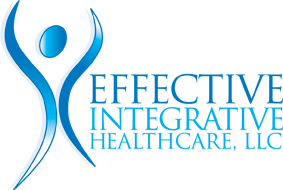Vitamin B-12 Deficiency: Are You at Risk?
Have you heard of vitamin B-12? It sounds obscure, perhaps inconsequential, but in fact, the exact opposite is true. Vitamin B-12 is involved with the metabolism of every cell in your body. This means it affects everything from your nerves and joints to your mental health and balance. Find out more about this vitamin and whether you’re at risk for vitamin B-12 deficiency.
The Importance of Vitamin B-12
This vitamin exists in several forms, all of which contain the mineral cobalt. Therefore, compounds with B-12 activity are called “cobalamins.” Your body needs vitamin B-12 to make red blood cells, synthesize DNA, support healthy neurology, and carry out other tasks vital for day-to-day function.
As with most vitamins, your body can’t produce cobalamins, meaning you must obtain them from your diet. Some people don’t get enough vitamin B-12 to meet their needs, either because they don’t eat enough or their body can’t absorb enough. This causes a deficiency, something around 3.2 percent of older adults suffer from, with another 20 percent hovering at borderline B-12 deficiency.
Causes of Low Vitamin B-12
Here are some of the most common reasons a person might have insufficient cobalamin levels:
- Dietary deficiency: The only foods that contain B-12 naturally are animal products, including meat, poultry, eggs, and dairy, putting strict vegetarians and vegans at risk of deficiency.
- Weight loss surgery: Operations that involve removing part of the stomach impair the body’s ability to absorb some nutrients properly, including B-12.
- Certain medical conditions: Crohn’s and celiac disease impact nutrient absorption, which could increase the risk of cobalamin deficiency.
- Some prescription drugs: Taking heartburn medication that reduces acid in the stomach impairs the body’s ability to absorb B-12.
Symptoms of Vitamin B-12 Deficiency
Low cobalamin levels tend to develop slowly, causing symptoms to appear gradually over time. The wide array of possible symptoms makes it difficult to diagnose this condition without a blood test. Still, here are some signs to watch for:
- Numbness, tingling, or strange sensations in the hands, legs, or feet
- Balance problems
- Anemia (low red blood cell count)
- Swollen tongue
- Cognitive difficulties
- Weakness and fatigue
How to Boost Your Vitamin B-12 Levels
You can correct or prevent low vitamin B-12 with these tips:
- Eat the right food: B-12 is found naturally in meat products, but vegetarians can increase their levels by eating fortified bread and cereal.
- Supplement your diet with pills: Borderline deficiency can be corrected with a standard multivitamin, while severely low levels may require a daily high-dose B-12 pill.
- Schedule vitamin shots: The best way to get around nutrient absorption barriers is with vitamin shots. These injections only take a few minutes to administer, and they counteract the symptoms of B-12 deficiency that negatively impact your quality of life.
Effective Integrative Healthcare promotes good health without surgery or pharmaceuticals. If you’re interested in trying vitamin B-12 shots, please contact one of our offices in Millersville, and Crofton, MD.

